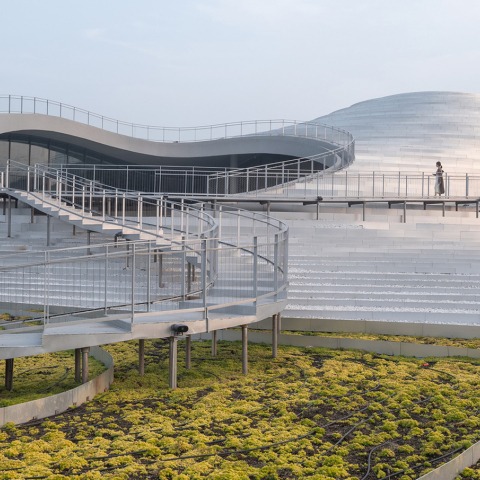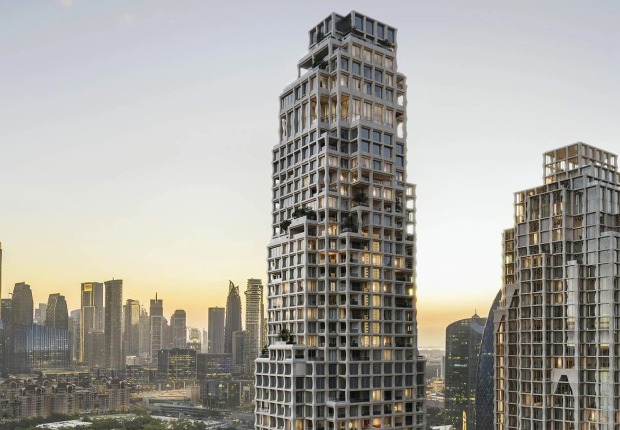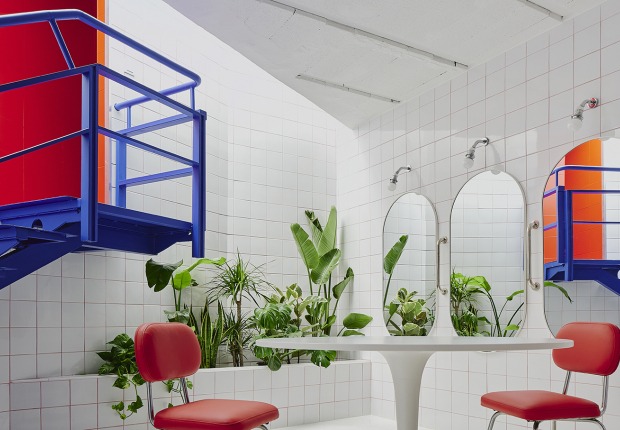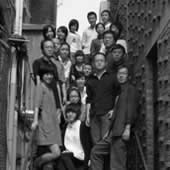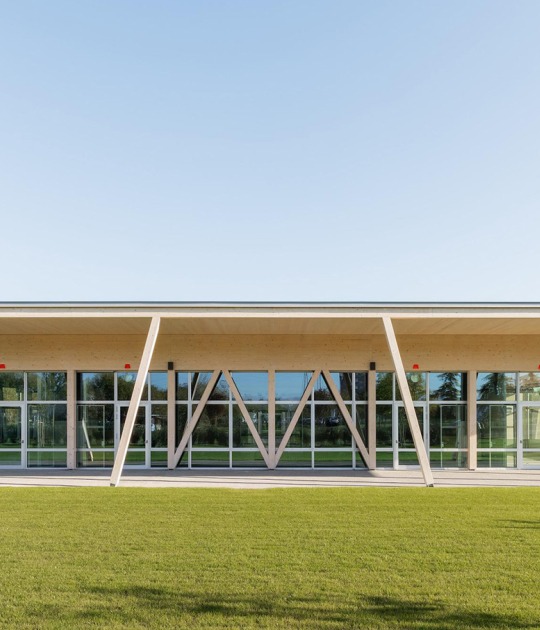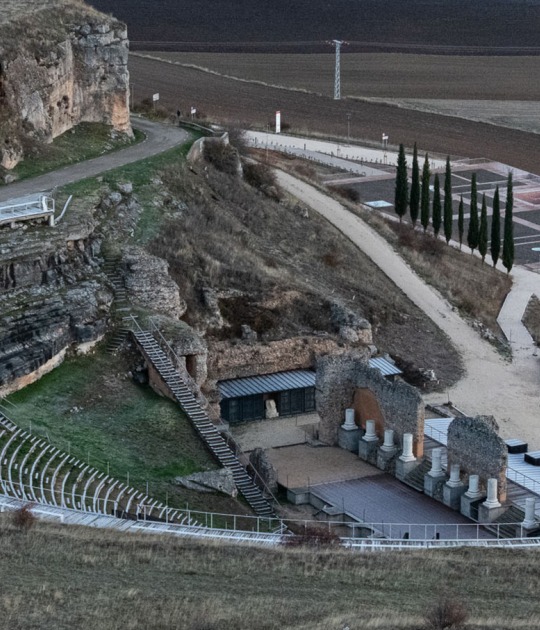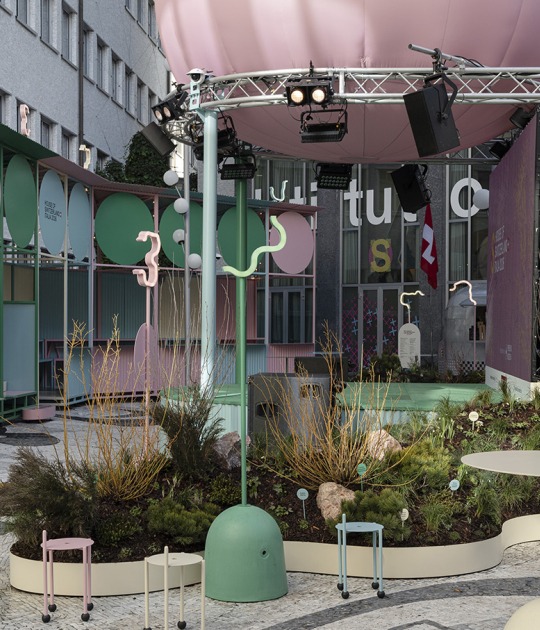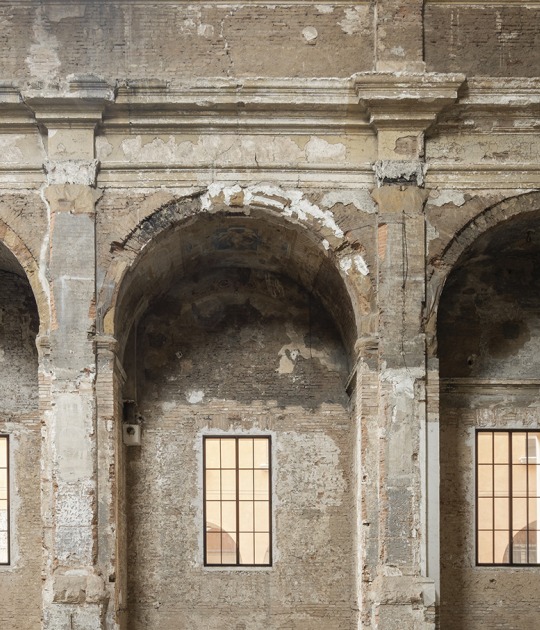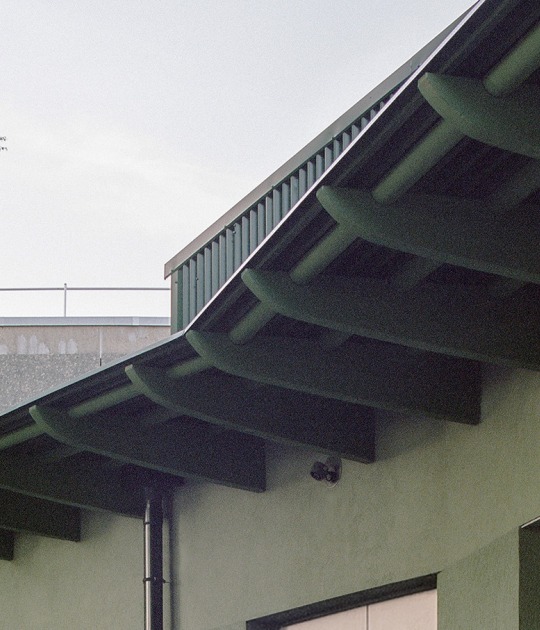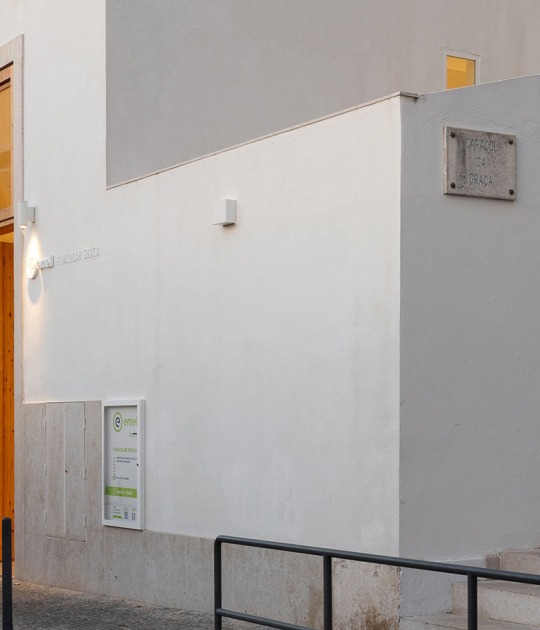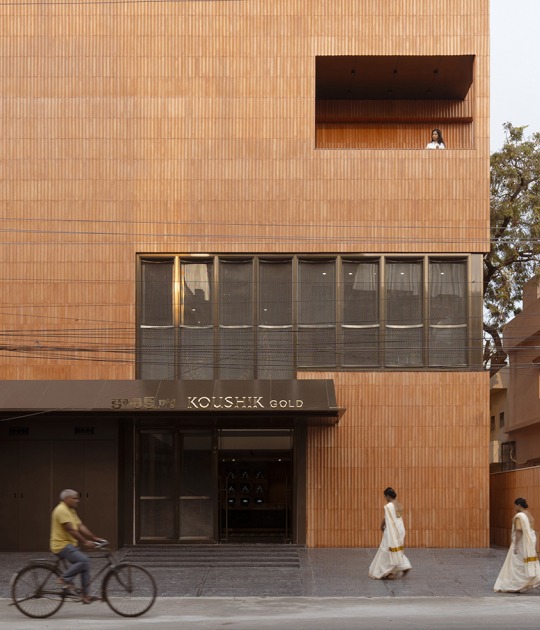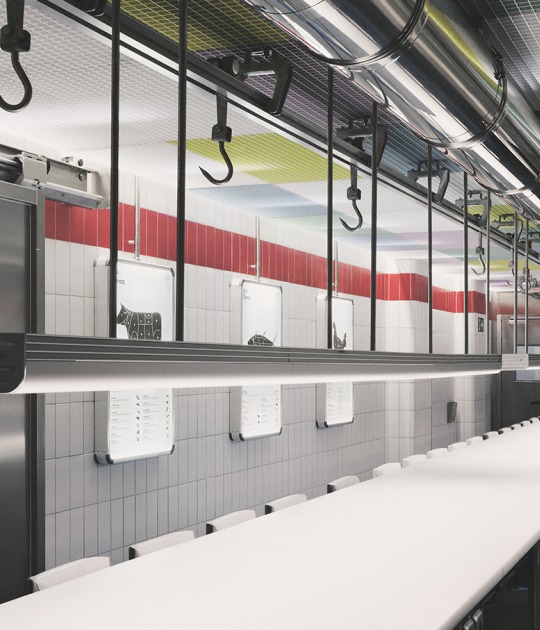The main entrance to the museum, as well as the public programs including the Creative Cultural Spaces, are all placed on the west, with a plaza where there are ramped paths linking to the second-floor café and rooftop terrace, establishing a public circulation that could still operate after the museum closes.
The main hall, together with the undulating roofscape, creates a unique space for exhibition. The space of the exhibition uses floating exhibition walls, and there is no longer a set circulation for visiting the exhibition. The walls are both surfaces for exhibiting, as well as the structure for the undulating roof.
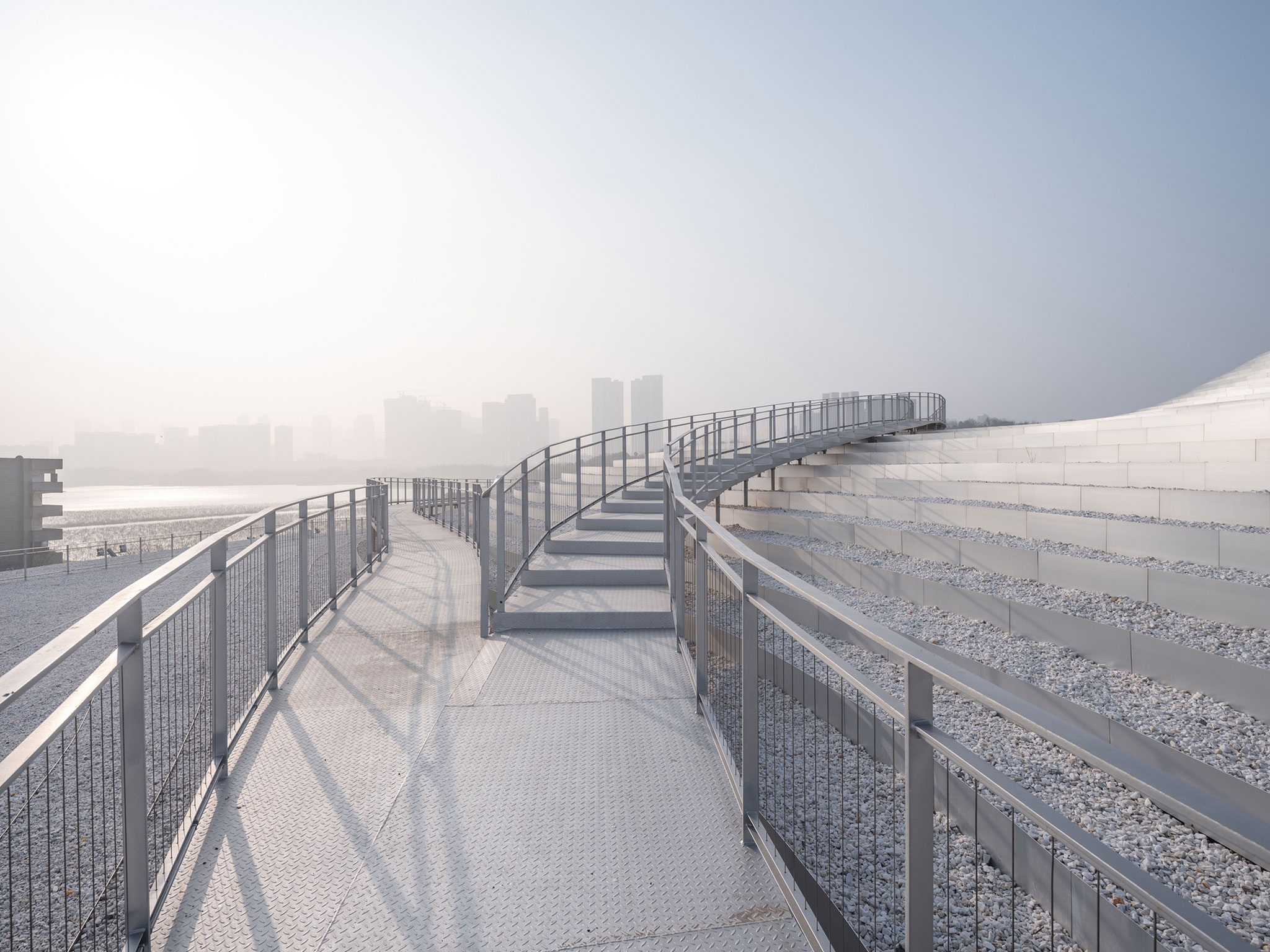
Qintai Art Museum by Atelier Deshaus. Photograph by Fangfang Tian
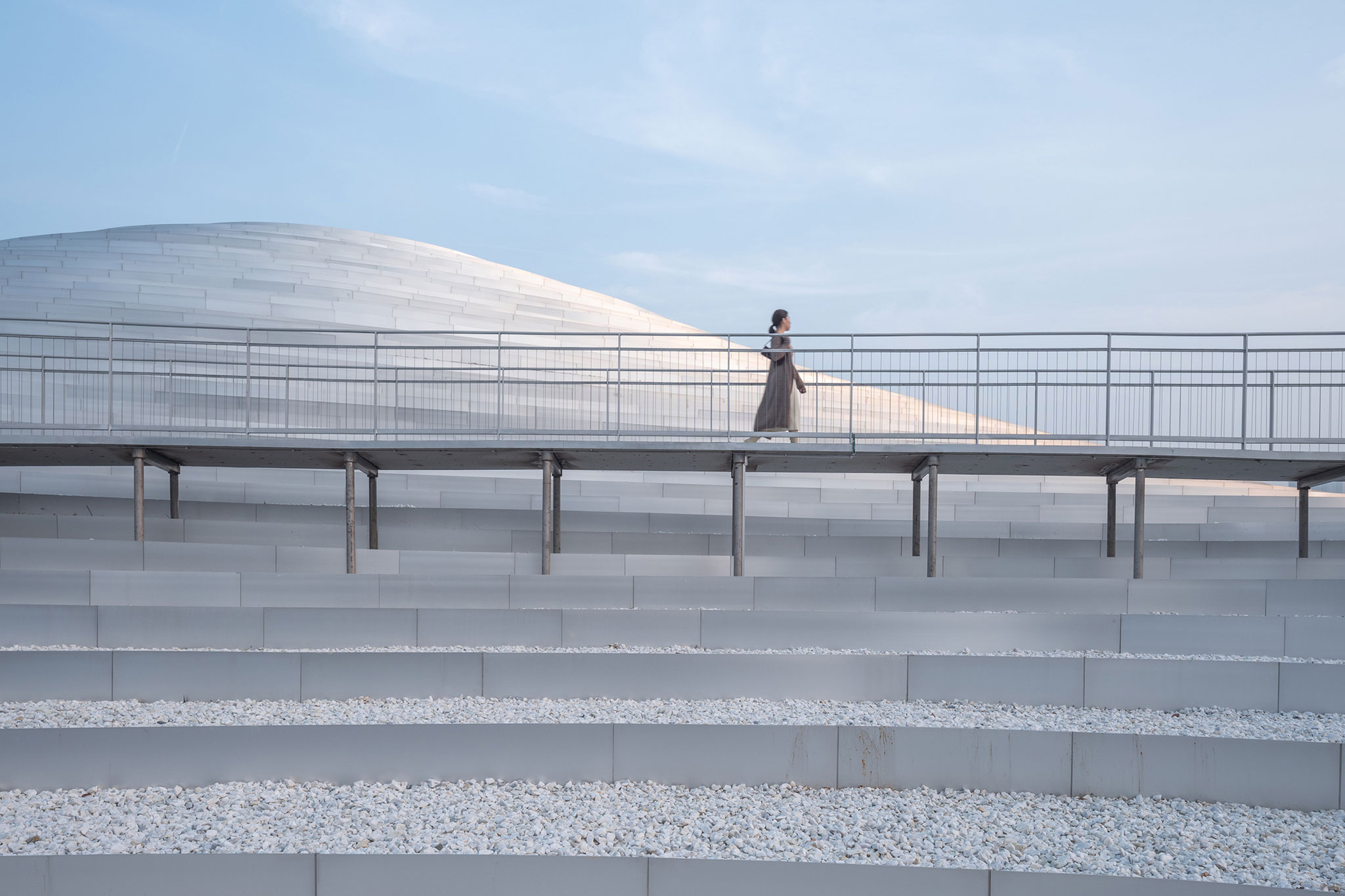
Qintai Art Museum by Atelier Deshaus. Photograph by Fangfang Tian.
Project description by Atelier Deshaus
Qintai Art Museum is located on the lakeside of Moon Lake in Wuhan’s Hanyang District, facing Meizi Hill across the lake to the south. In order to reduce the weight of the architectural mass on the natural surface of the lake, the form of an undulating natural terrain is used in the direction of the lake, while sinking part of the exhibition spaces underground. This both uses the underground space, and also minimizes the massing on the ground. On the side facing the city road, on the other hand, a vertical facade continues to uphold architecture’s urbanity.
The undulating roof is formed by an abstract stepped terrace following topographic contours. The risers of the steps are lined using silver metallic surfaces, while the treads are covered with white stones and low vegetation, traversed by winding planked walking paths.
These rooftop paths are entirely open to the public, connecting to Moon Lake, as well as the exits of the museum exhibition spaces, the space for public education, the art shop, the café, and the other public spaces. Thus, they form a public space framework independent from the exhibition spaces of the museum. The activities of the public are part of the architectural surface.
The art museum architecture as an intervention has redefined the urban space on the south bank of Moon Lake. To the west of the museum, the space is reserved for an urban plaza, interacting in the future with the Wuhan Library and Drama Centre under planning.
The main entrance to the museum, as well as the programs with strong public tenets including the Creative Cultural Spaces, are all placed on this side, where a subtly inwardly-curved façade together with the place creates a sense of enclosure. From the plaza there are ramped paths linking to the second-floor café and rooftop terrace, establishing a public circulation that could still operate after the museum closes. Operationally, this strengthens the openness of the museum and the urbanity of the architecture.
The main hall, together with the undulating roofscape, creates a unique space for exhibition. The space of the exhibition uses floating exhibition walls, and there is no longer a set circulation for visiting the exhibition. The walls are both surfaces for exhibiting, as well as the structure for the undulating roof.
The exhibition spaces for contemporary art, modern art, and classical art, as well as for special exhibitions, could be independently accessed, or sequentially linked, having great functional flexibility.
